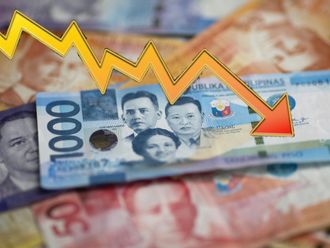A few weeks ago, a certain report made headlines in the UAE when it declared that the country was home to the ninth largest millionaire population in the world. Almost every newspaper in the country cheered the finding that 40 out of 1,000 households had a million dollars and more.
While I certainly applaud the fine report and the proud milestone for the UAE and its people, I could not help but worry that the message would be taken out of context by the remaining 960 households — particularly among its younger members — who aren’t millionaires yet.
One million dollars has long been seen as the desired wealth threshold that could lead us to a comfortable retirement. The magic figure conjured up visions of senior citizens being able to afford a good life. Then the global financial crisis hit in 2008 and decided to spoil the show.
Since then, the allegorical Guidebook to Retirement Planning has been extensively rewritten. Several new chapters have been added, as new and enduring risks to the financial world came into view. Even the book’s ‘conclusion’ had to be revised — it now calls on us to keep re-examining our financial trajectory, which includes tracking our income, as well as spending and saving habits — on a periodic basis.
Such a guidebook may mean dull reading for most young people today. A call to introspect and change their perspectives towards money isn’t exciting to all. The happy-go-lucky may say there’s no real need to read and ponder over the new financial realities — that money comes and goes.
Whatever the case, each of us needs to decide whether we would like to learn and read the signposts, or ignore them as we proceed headlong down a financial road whose end point is obscured.
For those of us retiring in the coming decades, a million dollars may no longer prove to be the wall thick enough to shield us from the volatilities of the global macroeconomic landscape. Nor would it stretch far enough, given that more people are living longer lives than ever before — which would naturally require a larger pot of savings. We may not even attach a lot of hope on the strength of returns on our million dollar investments.
Climate change, growing populations, depleting natural resources, social unrest are some factors that will increasingly conspire to drive up inflation and continue to erode the power of our savings. Expatriates in the UAE must contend with one more challenge: the vast majority do not have the privilege of pension — undoubtedly, a vital stream of income for many retirees.
Given the possibility that more of us will have to jump through tough financial loops with our aged knees in the 2030s and beyond, I am convinced that everyone needs to start planning and working towards becoming, at the very least, millionaires. The alternative — being old and broke — is not an acceptable option at all for any of us.
But saving intelligently in a way that reduces and mitigates risks and maximises returns — becomes a real challenge for a variety of reasons. Life in the UAE — not unlike that in other affluent countries — is increasingly expensive and can consume greater parts of our income pie with every passing year. Even for those who do not feel compelled to keep up with the Joneses, our world is one where various expenses are mounting: rents and property prices are getting dearer, shopping festivals and hard-to-ignore promotions are never ending, wondrous technological products are a must-have, and holidaying in overseas destinations is no longer a privilege exclusive to the rich.
No wonder, then, that the National Bonds Savings Index 2012 found that 65 per cent of respondents in the UAE were not saving regularly. Only 1 per cent of residents and 13 per cent of citizens felt they are ‘saving enough’ for their future. The index pointed to the probable causes: while groceries, education and rents were understandably the main expense categories, restaurant bills and the purchase of luxury items are two major expense heads that ate into incomes.
While I cannot argue with the forces associated with rents spiralling upwards, the necessity of investing in a good education, or the wisdom of owning a roadworthy car, I can certainly say that we can do much to eliminate unnecessary wants that add up to burn huge holes into our pockets. In order to save enough for retirement, we, as buyers, need to be aware of smart marketing tactics that are aimed to part us from our hard-earned dirhams. And every dirham spent needlessly is one that could have gone into our retirement kitty.
What, then, are the things that the people of the UAE must do now for nurturing their golden years? It is vital that we educate ourselves about the power of compound profit and understand how we can make apply its goodness in our lives. We can also work our life’s plan backwards.
Start with the assumption that you may live up to a ripe age of 90. Then ask: How will I sustain myself for each year I live beyond retirement? What do I need to do differently today in terms of spending, saving and investment? In which part of the world do I see myself after retirement? What would be the annual cost of living there at that time?
What kind of expenses can I anticipate and how can I prepare now to meet them? Moreover, what are the termites that are nibbling away at my hard-earned money today?
Granted, this exercise is partly rooted in the realm of conjecture, but it is one that we must do. The alternative is not to have any plan whatsoever, and drift aimlessly, pay-cheque to pay-cheque, until all our salaries run out.
The global financial landscape has drastically changed. And it will likely change again in our lifetime. While the sun shines, the wise will continue to save for a rainy day, all the time watching out for foolhardy winds that tend to blow our precious money away.
The writer is the CEO of National Bonds Corporation.












